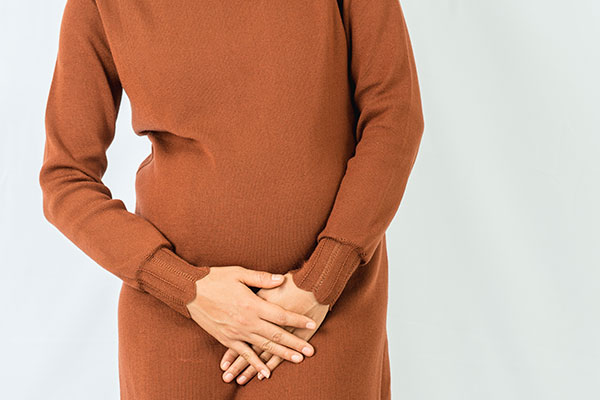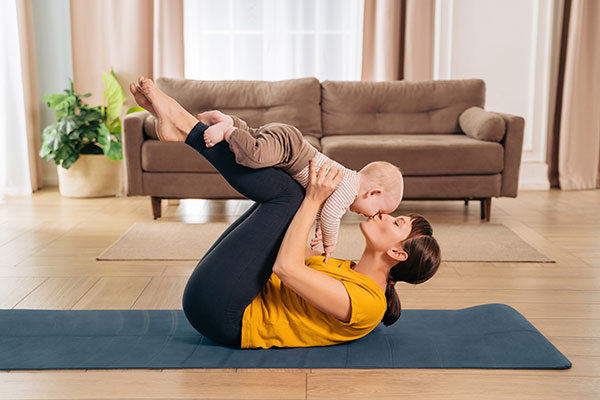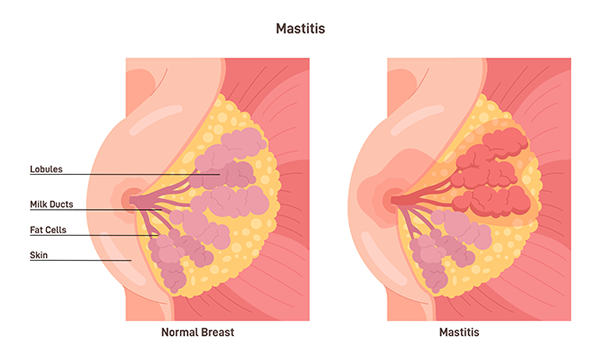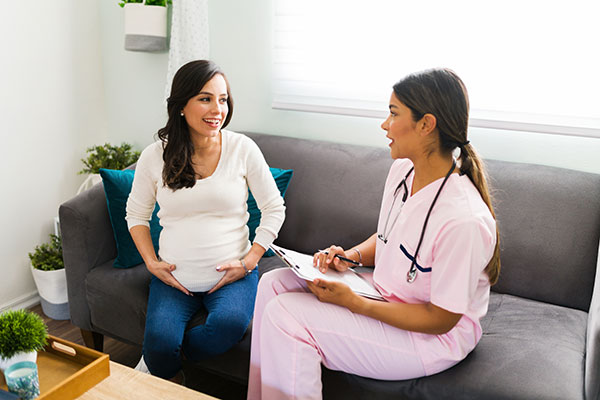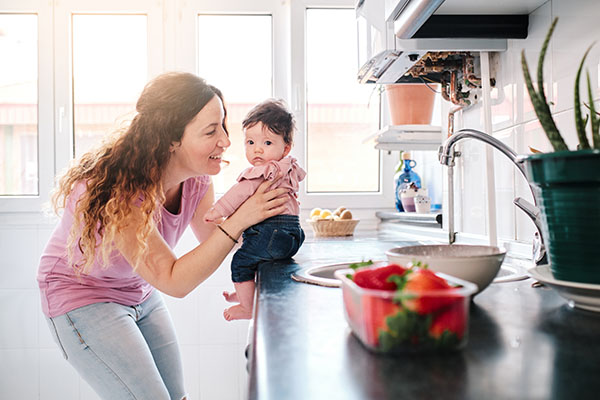Pregnancy and childbirth are among life’s most transformative experiences, yet they’re also surrounded by countless myths and misconceptions that can create unnecessary anxiety for expectant mothers in Cumming and throughout North Georgia.
Category: New Motherhood
What’s Normal “Down There” After Vaginal Birth – And What’s Not
Giving birth is a powerful, life-changing experience—and it also changes your body in ways you may not have expected. If you’ve recently delivered a baby vaginally and are wondering what’s supposed to feel different “down there” (and what might need a doctor’s attention), you’re not alone.
Top 10 Tips for Breastfeeding Twins
Breastfeeding twins presents unique challenges, but with the right strategies and support, many mothers find it to be a rewarding experience. At North Pointe OB/GYN in Cumming, GA, we understand the complexities involved and are here to offer guidance.
Regaining Bladder Control After Childbirth
Childbirth is an extraordinary experience, but it can sometimes lead to unexpected changes in your body, such as difficulty controlling your bladder. This is a common issue for many new mothers, and it’s often due to the physical changes that occur during pregnancy and delivery.
Mastitis and Other Breastfeeding Issues You Need to Tell Your Doctor About
Breastfeeding can be a beautiful bonding experience for moms and babies, but it doesn’t always go smoothly. While some moms may navigate breastfeeding without any issues, others can experience complications like mastitis, clogged ducts, or nipple pain that require attention.
Midwife Frequently Asked Questions
At North Pointe OB/GYN in Cumming, we understand that choosing the right care provider for your pregnancy and childbirth is a significant decision. Midwives play a crucial role in providing personalized, compassionate care throughout the pregnancy journey. To help you understand the role of midwives and what they offer, we’ve compiled this comprehensive FAQ guide.
Regaining Bladder Control After Giving Birth
Childbirth is a miraculous event, but it can bring about changes to your body that you might not have anticipated. One such change that many new mothers experience is urinary incontinence (UI), which refers to the involuntary leakage of urine. This can happen when coughing, sneezing, laughing, or during physical activity. At North Pointe OB/GYN in Cumming, we understand the challenges this condition poses and are committed to helping you regain bladder control after giving birth. Here are effective ways to manage and treat urinary incontinence postpartum.
Understanding Postpartum Urinary Incontinence
After childbirth, it’s common for women to experience temporary urinary incontinence due to the stress and strain the pelvic floor muscles have endured. These muscles support the bladder, and when they’re weakened, they can lead to UI. It’s important to understand that this is a common issue and you’re not alone. There are various types of UI, with stress incontinence and urge incontinence being the most common among new mothers.
Effective Strategies to Regain Bladder Control
1. Pelvic Floor Exercises: One of the most effective ways to regain bladder control is through pelvic floor exercises, commonly known as Kegel exercises. These exercises help strengthen the pelvic floor muscles, which can help reduce or eliminate leaks. It’s important to perform these exercises correctly, so seek guidance from your healthcare provider at North Pointe OB/GYN.
2. Bladder Training: Bladder training involves learning to delay urination after feeling the urge to go. It helps increase the capacity of the bladder and improves control over the timing of urination. This method requires patience and practice, and your provider can offer tips and strategies to make it more effective.
3. Maintain a Healthy Weight: Extra weight can increase pressure on your bladder and surrounding muscles, worsening UI. Maintaining a healthy weight through a balanced diet and regular exercise can help alleviate some of this pressure and improve symptoms.
4. Avoid Bladder Irritants: Certain foods and drinks can irritate the bladder and exacerbate incontinence symptoms. Limiting caffeine, alcohol, spicy foods, and acidic fruits can help manage UI. Additionally, staying hydrated and spreading fluid intake throughout the day can also be beneficial.
5. Use of Incontinence Products: While working on regaining bladder control, incontinence products such as pads or protective underwear can provide security and comfort. They can help manage leaks and allow you to continue your daily activities without worry.
Professional Treatment Options for Urinary Incontinence
If lifestyle changes and home strategies aren’t enough to control your UI, there are medical treatments available:
1. Physical Therapy: Specialized physical therapists can provide targeted exercises and techniques to strengthen the pelvic floor and improve bladder control.
2. Medication: Certain medications can help manage symptoms of urge incontinence by calming an overactive bladder.
3. Minimally Invasive Procedures: For more severe cases, procedures like nerve stimulations or injectable bulking agents can offer relief when other treatments haven’t been effective.
4. Surgery: In cases where other treatments have failed, surgical options are available to provide a more permanent solution to urinary incontinence.
At North Pointe OB/GYN in Cumming, we are dedicated to providing compassionate and comprehensive care to address postpartum urinary incontinence. We understand the impact that UI can have on your quality of life and are here to support you in finding the right solution. If you’re struggling with bladder control after giving birth, don’t hesitate to reach out to us. Together, we can develop a personalized plan to help you regain your confidence and control.
Caring for Yourself as a New Mom
It is not uncommon for new moms to be overwhelmed and frustrated with the way they look and feel. You’ve got a tiny being that needs you around the clock, you are tending to yourself much less than you were before you gave birth. It is not uncommon to avoid looking in the mirror, feel run down or carry a low self-esteem when caring for a newborn. Being dissatisfied with yourself physically can often fuel a negative mindset, and the cycle continues.
At North Pointe OB/GYN, we understand feeling self-conscious about your figure as a new mom. We want women to establish healthy habits and ways of thinking to look and feel better.
Choose Balance Over Extreme
While you may be tempted to dive into extreme measures to regain your pre-pregnancy figure, you should be careful of what that means for your energy and health as a new mom. Drastically reducing calories or engaging in excessive exercise can zap the energy your body desperately needs to care for your baby. In fact, if you are breastfeeding, an extreme dieting plan can lower or eliminate your rich milk supply.
Don’t worry; being a good mom doesn’t mean you have to neglect yourself altogether. But there’s a balance – a healthy balance. Try to work with your physician to develop a program that focuses on healthy weight loss without neglecting your responsibilities as a mom. Such programs may involve the following:
Nutrition Counseling
Eating looks different when you are a busy mom. A nutritionist can help you choose healthy snacks for your ‘on the go’ lifestyle as well as develop a customized caloric intake plan that ensures you lose weight in a healthy manner.
Physical Activity
Moving your body improves many aspects of your physical and emotional wellbeing. Establishing an exercise plan not only helps to balance your eating habits, but it also provides opportunities that you can exercise with your child!
Mood Monitoring
Ongoing support for new moms is extremely important. You’ll undoubtedly have good days and bad days. Days when you feel great about yourself, and days when you feel like you are falling short. Find a network of family and friends that can not only give you advice and encouragement, but also help monitor your moods and emotional health. If you are experiencing signs of post-partum depression, you should talk to your doctor sooner rather
Self-Rewarding
Don’t be too hard on yourself. You’ve formed a precious life and are doing the hard work of raising a child. While the weight loss can be discouraging at times, it is important to have a healthy perspective and seek ways to make you feel better about yourself. This can include a massage or facial or simply having lunch with a friend without your baby. Taking time for yourself can be one of the best gifts you give your child!
To learn more about caring for yourself as a new mom, call North Pointe OB/GYN in Cumming.


